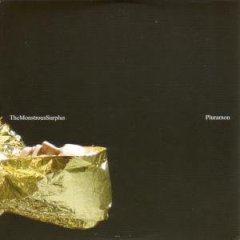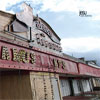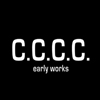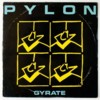- Administrator
- Albums and Singles
 After seven years of active absence, these unsung noise rockers take another stab at the bloated whale called the music business. As usual, this trio of studio gurus spits fire and exerts brute force that leaves weaker musicians and more than a few unsuspecting listeners irrevocably harmed with their latest salvo.
After seven years of active absence, these unsung noise rockers take another stab at the bloated whale called the music business. As usual, this trio of studio gurus spits fire and exerts brute force that leaves weaker musicians and more than a few unsuspecting listeners irrevocably harmed with their latest salvo.
As with legendary producer Steve Albini's prior bands, Shellac has never been about the fans but rather in spite of them. The industry-hardened trio of Albini, bassist Bob Weston, and drummer Todd Trainer make angular, furious music with a merciless, confrontational edge. With its members spending much of their time assisting other bands in making their albums, Shellac serves as their own infrequent outlet beyond now-impenetrable rock-and-roll resume building. Their debut, 1994's requisite At Action Park, was a monumental headfuck that sodomized, waterboarded, and indoctrinated to the point where it became impossible not to have an opinion about Shellac. The albums that followed each have their respective merits, and Excellent Italian Greyhound is no exception.
Opener "The End of Radio," an onslaught of calculated menace that mockingly celebrates the death of the commercial airwaves, finds a pathologically steady bassline, militant snare-dependent rhythms, and incoherent guitar howl skulking behind Albini's vitriol. His bloodlust for the inherently corrupt and despicable music industry has appeared many times before, most poignantly in a must-read essay titled "The Problem with Music." But this eight-and-a-half minute venomous eulogy reminds just why Shellac retains such an eager fan base; all parties share a common disdain. As always, Albini's biting humor often informs these mostly raucous proceedings, as evidenced on the hilarious and boastful "Be Prepared." Brief and primitive post-punk rockers like the quasi-motivational "Boycott" and the jarring yet evocative "Spoke" are balanced by longer songs where the band exercises an acute sense of restraint. Like a song in pieces, "Genuine Lulabelle" nearly doesn't attempt to reassemble itself, resulting in sparse guitar plucks and strums interrupted and infiltrated by fleeting fractious bursts of rhythm and even tuneless acapella vocals from a subdued Albini, spoken word poet Ken Nordine, and Internet celebrity Strongbad. By its final two minutes, the band seems to have found the plot long enough to deliver an oblique though comparatively competent end.
While multi-millionaires like Trent Reznor, Madonna, and the blokes from the increasingly pedestrian Radiohead can afford to snub their noses at the industry, these guys were doing it long before anyone heard one chord of Pablo Honey. Although Excellent Italian Greyhound wont turn Shellac into MTV darlings, that has always been the furthest thing from these guys' minds. By making music that they want to listen to themselves, they thrive in the notable category of being one of your favorite band's favorite bands—not that it matters. After 13 years, Shellac still doesn't give a shit.
samples:
Read More
- Administrator
- Albums and Singles
 The fifth full-length release by Marcus Schmickler as Pluramon uses three vocalists, including Julee Cruise. This simple device allows for multiple angles of perception to be explored in different narrative voices. Allied to spellbinding production, this is a fascinating record.
The fifth full-length release by Marcus Schmickler as Pluramon uses three vocalists, including Julee Cruise. This simple device allows for multiple angles of perception to be explored in different narrative voices. Allied to spellbinding production, this is a fascinating record.With Julee Cruise on vocals, the euphoric "Turn In" has a lush headiness that flies dangerously close to Fleetwood Mac 2.0. She is singing words, some of which might be harsh or rude, but the gentle swirling mix is so hypnotic that no one in their right mind would be concerned what they are. It is the shockingly blissful equivalent of cracking an egg into a pan and gazing down upon a warbling embryonic Stevie Nicks.
"Border" is a sonic cocoon, wrapped with layers of synth, percussion, and guitar similar to Mono at their most tantalizing. It features vocals by German actress Julia Hummer, though it is Schmickler himself who sings the nauseating opening lines: "This is it/This is Life/It's all right/Cos I'm in love with you/ OK/ There's beauty in breakdown". Again, the music is unflinchingly suffocating and dreamlike. Such an overwhelmingly sweet sound can only be tolerated because here and there the lyrics hint at bitterness, darkness, traps, deceit, and heartache. Schmickler has a lot of experience with beats, improvisation and choral music and he avoids making a piece of music too long, too dense, or too cloying. Consequently, The Monstrous Surplus is a wondrous balance between the enigmatic and the palatable.
The use of two similar but disparate singers reminds me of the late Bunuel film That Obscure Object of Desire where the lead role is played by two different actresses. Cruise and Hummer both have four tracks, but even with sleeve notes, discerning who sings which is not necessary to enjoy the album. This trick perhaps questions the notion of romantic love, wherein there is but one perfect match for each of us. Either that, or it might allude to the untrustworthiness of human desire in the sped-up flicker-book world of urban sprawl, wherein anyone can "fall in love" with complete strangers twice a week.
"Fishing" strongly echoes "Border" and Schmickler sings, "I was faking this shit." There may well be deceit in the recorded narrative but the phrase is also a reminder that the creative arts link the equally (un)reliable worlds of imagination and reality. A third female voice, the writer Jutta Koether, appears on "Fresh Aufhebung" and the pretty, fuzz-laden final piece, "So?" Her alluring speaking voice, reminiscent of the oddly commanding tones associated with Tarwater, adds a contrasting feeling of uneasiness to the album. At the end of "So?" she says "Beauty is a mess," but that statement is contradicted by almost all the compositions on this mysterious record. Many listens are required to unpick the puzzles buried beneath the cleverly constructed sheen of The Monstrous Surplus. It appears to tread lightly but leaves an enormous impression. Quite how the bizarre cover version of Sham 69's "If The Kids Are United" (sung by Hummer) fits in, though, I couldn't possibly say.
samples:
Read More
- Administrator
- Albums and Singles
 With a quick, cursory listen to this disc, it is not hard to see why these tracks didn't make it onto any other Jesu release. Not due to a lack of quality or anything like that, they just would not have clearly stuck out as too "different" among the others that have been released. With that in mind, we are presented eight tracks that are among the most experimental Justin Broadrick has released, but like almost everything else he has a hand in, are pure gold.
With a quick, cursory listen to this disc, it is not hard to see why these tracks didn't make it onto any other Jesu release. Not due to a lack of quality or anything like that, they just would not have clearly stuck out as too "different" among the others that have been released. With that in mind, we are presented eight tracks that are among the most experimental Justin Broadrick has released, but like almost everything else he has a hand in, are pure gold.
 
Among the four vocal tracks (the remaining for are instrumentals), one of the most notable differences is in the drum tracks.Where most of Jesu's body of work has stuck to rudimentary rock rhythms, the tracks here are more apt to drift into electronica and IDM rhythms rather than conventional sounds."Can I Go Now" has a beat that wouldn't be out of place in a club, if it were not matched with the melody of a decaying music box and some bass heavy riffing.It's akin to some of Jesu's gentler work with a less distortion based take on Techno Animal.Interestingly, Broadrick gives some of his most melodic vocals to date around this track, even if they are heavily effected and processed."The Playgrounds are Empty" is perhaps the most conventional of the tracks, other than the skittering electronic rhythms and odd vocal filtering, it is all bass heavy riffs and more gentle treated guitar notes.As a whole, the vocal tracks are more electronic in nature, sort of like the Jesu portion of the Eluvium split that came out earlier this year, but are more compelling.
The instrumentals are a bit more in line with the conventional Jesu tracks that have been on the multitude of albums and EPs, with a greater emphasis on the guitar riffs and rock rhythms, just a greater amount of electronic tweaking and effects, like the cut up vocal loop of "Don't Dream It," which is lots of heavy riffs yet fragmented and mixed with a twinkling piano melody."Tiny Universes" is among the most idiosyncratic, with a rhythm that could have been lifted from the forgotten Sidewinder project of Broadrick with soft ambient synths.The instrumentals do have that "sketches" feeling about them, that they are experiments that just were not fully fleshed out, but even in this stripped down context are still fascinating.
There is the definite potential for Pale Sketches to be the "lost" Jesu work of this year.Considering the level of productivity this year (Conqueror, Sun Down/Sun Rise, the Eluvium split, and Lifeline), this one hasn't received a massive amount of attention.Perhaps it is due the fact it is a limited edition of 2000 being sold directly by Broadrick (by the way, this is a totally solo endeavor, from all of the tracks to the graphic design), but I figure that's probably intentional.This record screams "for the fans": those of us who have been around since the Heart Ache EP, and most of us back far into Godflesh's heyday.So for the fans, here's a chance to hear some experimentation that never feels self-indulgent or wasted.
samples:
Read More
- Administrator
- Albums and Singles
 Though only active for a relatively short period, this band became one of the genre definers of what is now the burgeoning noise scene. This deluxe four CD boxed set represents some of the earliest live recordings from the (mostly) four piece band and shows that, regardless of what is perceived as "noise" as it relates to music, they have a compelling body of work.
Though only active for a relatively short period, this band became one of the genre definers of what is now the burgeoning noise scene. This deluxe four CD boxed set represents some of the earliest live recordings from the (mostly) four piece band and shows that, regardless of what is perceived as "noise" as it relates to music, they have a compelling body of work.
Cosmic Coincidence Control Center were active during what I personally term the "golden age of noise," from the late 1980s into the mid 1990s. Japan was then a hotbed for this stuff—Merzbow, Masonna, Government Alpha, Pain Jerk, etc.—and one of the things that set C.C.C.C. apart was the fact they were an actual BAND. All of the aforementioned, and most of the other ones not listed (with the exception of Hijokaidan) were single artist projects. Here there four members, each playing a different instrument, to create their own unique sound. Hiroshi Hasegawa (now of Astro and Astral Traveling Unity) and Fumio Kosakai (of the Incapacitants) on electronics and synths, Ryuichi Nagakubo on bass, and Japanese bondage film star Mayuko Hino on vocals and metal percussion working together make for a diverse project that goes a ways beyond the standard "electronic roar" that most noise artists rely on.
Spread across the four discs of this set are mostly live recordings at various locations that haven't been released otherwise in any other form. The earliest recordings, one of which being a duo of Hasegawa and Hino, prove to naysayers that noise isn't just a matter of full on sound: there are obvious moments of tension building noise walls met with more expansive bits of ambience, all punctuated with rhythmic junk percussion. There are closer parallels to some of the earlier industrial innovators like SPK and Test Dept. with the use of improvised metal rhythms over a synthetic din.
C.C.C.C. was stereotyped as a "psychedelic" noise band early on due to their penchant for flanged and phased noise, and some of those elements are present at this early stage in their career, like the dense flanged synth pulse on "Live at Gospel #3." Other of the performances showcase Hino's shrill screams, like on "Live at Donzoko House #2," and the only studio recording, "Magick in the Cave." The latter, plus the 42+ minute live "Phantasmagoria," the entirety of disc 4, make up the cleanest recordings on the disc, as they were the only ones to have been released previously, unlike the rest of the material.
No Fun Productions has done an excellent job compiling this set, both visually and audially. The four panel digipak is minimally designed, featuring a video still from one of the performances (and yes, Hino is doing her nude/candle wax dripping performance on it, so enjoy), which folds into a nice, heavy stock slipcase. The liner notes, written by former member Fumio Kosakai, are also brilliant, and among the most interesting commentaries on music I have read. Although he reiterates more than once that he is just writing from his own perspective as a former member, his take of the history and development of the band is a fascinating one. And, big names all around, James Plotkin does an excellent job of mastering the admittedly lo-fi recordings. They do sound a bit rough around the edges, but it in no way detracts from the work.
samples:
Read More
- Administrator
- Albums and Singles
 This CD is the third installment in Rapoon's Alien Glyph Morphology series. The material here appeared previously in a 2X10'' LP, but it plays more like an compilation than a album. The songs use similar samples and snyth patches, but their quality varies widely and makes for a frustrating listen.
This CD is the third installment in Rapoon's Alien Glyph Morphology series. The material here appeared previously in a 2X10'' LP, but it plays more like an compilation than a album. The songs use similar samples and snyth patches, but their quality varies widely and makes for a frustrating listen.
The limited edition of this CD packaged in a beautiful chocolate brown triple gatefold sleeve. It's printed in ripple pattern that looks like channels of rainwater in the sand. Robin Storey, the man behind Rapoon and member of Reformed Faction, is as much a painter and printmaker as he is a musician. His designs are organic but not crude, mimicking the primitive yet futuristic landscape of the desert Southwest. In Colorado, where I grew up, alien mythology, Indian ruins, and Space Age nostalgia was, and still is, an important part the culture. Holding the sleeve and reading the titles brought back a lot memories of growing up there.
As for the music itself, I was less impressed. The synthesized instruments often sound chintzy, especially the trumpet patch used throughout the album. The clear, pristine sound production compounds this problem. Normally this is a virtue, but here it only highlights the artificial quality of Storey's sound sources. The more enjoyable tracks, like "Stealth Coming," have thick curtain of reverb pulled over them, creating the mysterious atmosphere I was expecting.
I had some reservations on speaking negatively about this release. I love the concept and packaging, but the music failed to elicit much a reaction at all. That said, it's hard to find serious fault, because I could just listen to the dozens of other releases and side projects Storey has put out before. And given how productive he is, I don't think it will take long for him to put out something more appealing.
samples:
Read More
- Administrator
- Albums and Singles
 Comparisons to Shellac and the pudgy but sludgy Melvins are legitimate, though this insolently self-proclaimed "two-piece punk band" has produced a compelling and anarchistic debut LP. While their riotous sounds suggest roots deep within the Touch and Go back catalog, The Austerity Program extracts every drop of blood from heavy metal's engorged gallstone.
Comparisons to Shellac and the pudgy but sludgy Melvins are legitimate, though this insolently self-proclaimed "two-piece punk band" has produced a compelling and anarchistic debut LP. While their riotous sounds suggest roots deep within the Touch and Go back catalog, The Austerity Program extracts every drop of blood from heavy metal's engorged gallstone.
Categorically, Hydra Head Records has had an absolutely marvelous year, with releases from critically acclaimed heavy music acts like Jesu and Pelican as well as rising stars like the first-rate Big Business and the Cave In / Old Man Gloom side-project Zozobra. While all of these blissfully lack homogeneity when compared to each other, The Austerity Program seems almost like a distant cousin, one that the family decided to keep the rest of the kids far away from. Musicians Justin Foley and Thad Calabrese present Black Madonna, their staggeringly transcendent first album, in a disorienting package of DayGlo flora, barely devised track titles, and chart-dependent pseudo-academic pretension. Yet behind this impenetrable exterior lies eight songs of bipolar tension, mammoth basslines, colossal electrified guitar riffs, and splendid programmed percussion.
The turbulently epic "Song 12" initiates this delightfully disruptive record without hesitation, throwing out the proverbial red meat without wasting time on arty introductions. Foley unleashes an exuberant thrash onslaught midway, with Calabrese accenting the measures by battering his taut metal strings. "Song 17B" follows that melee with a slow-building grind that eventually erupts into something so fierce and discordant that Steve Albini himself would proudly spew onto record. Vocally, Foley bears a slight resemblance to that misanthropic nerd, a welcome joy when so much of today's heavy music forces listeners to grudgingly choose between bellyaching emo-tards and equally tormented cookie monsters. On that track, Foley seethes with impassioned and alacritous urgency, threatening the ghastly effects of an unnamed poison. Even so, his bloodthirst is countered by an abstruse wit. At the very end of the robust "Song 18," I think he actually shouts out "Dora the Explorer" after unintelligibly roaring his way through its brusque duration.
The whopping closer, "Song 16," chugs along in meticulous fits and starts, with Foley moaning gruffly over the putrescent, sludgy slog. It begins ramping up to an inevitable yet invigorating climax nearly ten minutes in, with Foley hysterically shouting out his cohorts name in a clichéd rock-and-roll call-and-response before crying out "It's time to let it go". And let loose it does, with Foley's yelp and mutter caught up in vibrant aural violence. From start to finish, Black Madonna never disappoints, somehow balancing on a bloodied razor's edge between arena-ready accessibility and bulletproof abstraction. The Austerity Program makes gripping, ballsy noise rock that overwhelms and enthralls with unparalleled particularity and indisputable talent.
samples:
Read More
- Administrator
- Albums and Singles
 This ferocious triptych from the esteemed duo of Aidan Baker and Leah Buckareff lacks that gauzy, narcotic quality of Jesu's increasingly popular heady metal shoegaze, though it more than compensates by being imperiously steeped in consummately sepulchral aesthetics.
This ferocious triptych from the esteemed duo of Aidan Baker and Leah Buckareff lacks that gauzy, narcotic quality of Jesu's increasingly popular heady metal shoegaze, though it more than compensates by being imperiously steeped in consummately sepulchral aesthetics.
I first experienced Nadja's so-called ambient doom by catching the last five minutes or so of their performance at the Brainwaves festival in 2006, arriving characteristically late as a form of reckless, brash rebellion. Once in the darkened theater, their final act of ebbing and flowing didn't exactly motivate me to seek out their material, but now, a year later, I stumbled back on to this group thanks to recommendations from some especially rabid Sunn O))) fans. What I soon discovered was that Nadja's songs can only be fully absorbed, appreciated, and enjoyed when heard ideally in their respective entireties. (Nonetheless, ironically and in defiance, I am still offering sound samples below.)
Saturated in dark, polluted water, Radiance of Shadows recoils at the permeating glare of the sun above, except when taunting its drowning, panicked listeners with fleeting glimpses of an unattainable surface. Despite each of the three tracks clocking in at roughly less than 30 minutes a piece, the album demands active listening with its systematic flexing of muscles and interspersed lulls. "Now I am become death, destroyer of worlds" is more psychotropic than psychedelic, its massive and consumptive waves of riffage ravaging like some awesome yet terrifying acid trip. Walls of searing toxic sludge metal dovetail with disproportionately effulgent ambience, creating a dissonantly harmonious kind of bloom and gloom effect where sounds are simultaneously overwhelming and overwhelmed. The subsequent "I have tasted the fire inside your mouth" eases off the distortion pedal for long enough to appreciate its marginally strident atmospheres, but soon enough that oppressive grind resurges. As with Justin Broderick's aforementioned project, this track showcases the delicacy of harsh sonics, but discloses the evidence in vociferous abstraction as opposed to Jesu's clear song structure. The title track, which serves as the finale, builds up anxious tension between its buried, softly uttered lyrics and bombastic guitar eruptions, though it pales in comparison to its astounding preceding movements, fizzling out into familiar though somewhat redundant cacophony.
As if Nadja needed help in the credibility department, the venerable James Plotkin handled the mastering of this grotesque, transcendent record. With the destructive power of nuclear energy at its center, Radiance of Shadows attempts to metaphorically harness a sonic equivalent, and, to some extent, succeeds. Fans of Stephen O'Malley's myriad drone projects will certainly find this worth adding to their collections.
samples:
- now I am become death, destroyer of worlds
- i have tasted the fire inside your mouth
- radiance of shadows
Read More
- Administrator
- Albums and Singles
 Formication are the Nottingham based duo of Alec Bowman and Kingsley Ravenscroft who have recorded for Lumberton Trading Company (Thighpaulsandra, Experimental Audio Research). My previous experience of their music tells me the ideal way to submerge myself in their latest mini-album is through headphones, by candle light with an ice cold Guinness in hand.
Formication are the Nottingham based duo of Alec Bowman and Kingsley Ravenscroft who have recorded for Lumberton Trading Company (Thighpaulsandra, Experimental Audio Research). My previous experience of their music tells me the ideal way to submerge myself in their latest mini-album is through headphones, by candle light with an ice cold Guinness in hand.
The album's intro begins with some sinister electronic percussion while dark atmospheric synths create an unsettling feeling. Distant voices that sound like they're speaking in tongues suggest a nightmarish paranoia. The second track has a wailing sound that resonates through the off kilter percussion while layers of crackles permeate the sound of broken machines, like the technology is dying, taking its final breath as it malfunctions. The third track has a warm, lush beauty: minimal melodic keys and chimes sound familiar and comforting, like coming out of a bad trip with a sense of hope. It is simple in its execution yet astounding in its beauty. It is indeed "deep listening" as lots of subtle intricate pulses in the background can be tuned in to, and it is no longer the nightmare suggested by the album's opener.
As the comfort of reality sets in following the end of the nightmare, a restful sleep follows, but the relief is temporary. The sound of artificial crackles and fizzes are disorientating upon re-entry into that dark place, the most distant recesses of the subconscious. Meanwhile, the insect wings fluttering at hundreds of miles an hour puncture the brooding sub bass that weaves in and out of bubbling liquids, deeply rich textures, bleak soundscapes and synthetic audio sculptures. All the while a sense of melancholy permeates. It's a new world but it seems familiar. A million shades of black can be seen and each one is more intriguing than the last.
Agnosia closes with a cinematic, haunting piece that evolves into a hybrid techno track with eerie vocals and a futuristic vibe full of lurking tension and passionate intensity. It eventually becomes totally claustraphobic but as soon as it all becomes too much and I need to turn the lights on I'm relieved with white light as the album fades away like the ghost of a distant memory.
Agnosia is a set of tracks that are interesting on every level from their glacial surface through to each subtle detail in the production. At a running time of just over 32 minutes it doesn't overstay its welcome and therefore is ideal for some late night solo escapism during the impending winter.
Although the music is electronic in its construction it retains an organic, human feel throughout. Here are a duo who have truly mastered the art of black electronics: imagine Darth Vader and Aleister Crowley on powerbooks after completing a PhD in sound design. It is genuinely original sounding material that fans of Coil, Rapoon, Deathprod, and recent Dopplereffekt should investigate.
streaming sounds available at http://www.theformicarium.com/
Read More
- Administrator
- Albums and Singles
 Sightings sound like they come from another galaxy: their trashed metallic gutter rock has been giving earthlings tinnitus for a few years now. I expect it's how Chrome would sound to my Grandma. Their latest on Providence's Load is a little different. Something's changed.
Sightings sound like they come from another galaxy: their trashed metallic gutter rock has been giving earthlings tinnitus for a few years now. I expect it's how Chrome would sound to my Grandma. Their latest on Providence's Load is a little different. Something's changed.
What I love about Sightings is the completely overloaded, everything in the red, amps melting, full on bombastic racket that they create. However for this album they have utilized the production skills of Andrew W.K. (lately working with Lee "Scratch" Perry and Current 93) to create a far tamer, refined almost commercial sound. Although they've definatley been polished, there's still enough dirt to make this a great record. The band have gone on record as saying that they do not consider themselves strictly a noise act but a rock band. This is apparent as soon as the album kicks off with "A Rest."
My initial response to the new sound was one of bewildermeant and a hint of disappointment: the vocals are brought to the fore with the lyrics far easier to decipher, with them not being lost in a huge ball of chaotic noise. Then the realization of just how talented a songwriter Mark Morgan actually is set in. The ears eventually re-adjust to the new aesthetic and the album becomes as enjoyable as any of their previous works. Instrumental piece "Cloven Hoof" begins with a brooding distorted bassline before the cochlea are pummeled into submission by some ultra fast tribal beats and sci-fi horror electronics. The intensity increases throughout and it's pretty forward thinking for a "rock" band.
"This Most Real Of Hells" has a shuffling typewriter amplified into space sound at its core with a colossal wall of pure shattering distortion. The vocal is a spoken word type affair where Morgan sounds like a man posessed. "Certificate of No Effect" has the trio in fine form, screeching along to a pounding heavy groove which becomes obscene. Then the title track is like trademark Sightings: disorientating, wobbly bass, primal drums and a schizoid multi layered vocal. It is a tremendous piece of total cacophany which sits perfectly before "Degraded Hours," which is probably as close as these guys are ever gonna get to a ballad. A dark delay drenched bassline sits as the tracks foundation while pretty piano nestles beneath a melancholy vocal. It is a genuinely haunting song. The second instrumental cut, "Black Peter," ends proceedings in style with its chugging mechanical feel, infectious stomp, intricate oscillations, melodic guitar (Well almost!) and a bassline that's like ESG on Ketamine.
Through the Panama has all the qualities of a great album: shards of ear splitting feedback; alien rhythms; off kilter shambolic funk; smatterings of electronics that compliment the sound perfectly, fantastic use of stereo; unhinged aggression; quieter introspective moments; and a super cool cover of Scott walker's "The Electrician." The artwork is a suitably dark bird feather and chicken wire combination.
Upon subsequent listens I have a huge grin on my usually somber face. The genius lies in how the songs seem utterly chaotic and yet structured. Through The Panamais as essential as Absolutes, Arrived In Gold, End Times, or Michigan Haters. A vinyl edition is soon to follow on the Ecstatic Peace label.
MP3 download: Perforated
Read More
- Administrator
- Albums and Singles
 As members of Zoviet France, Mark Spybey and Robin Storey helped expand ambient music from new-age window dressing to something more dark and compelling. Starting almost 29 years ago, they were among the first artists to fuse the caustic sounds and spartan imagery of Industrial Music with dreamy atmospherics and indigenous insturmentation. This album, their second as Reformed Faction, encompasses the varied sounds and techniques in its members' formidable back catalogue.
As members of Zoviet France, Mark Spybey and Robin Storey helped expand ambient music from new-age window dressing to something more dark and compelling. Starting almost 29 years ago, they were among the first artists to fuse the caustic sounds and spartan imagery of Industrial Music with dreamy atmospherics and indigenous insturmentation. This album, their second as Reformed Faction, encompasses the varied sounds and techniques in its members' formidable back catalogue.
Spybey and Storey are masters of low-key menace. Many of the striking tracks on The War Against… exude a distant and concealed hostility that's echoed by the album's deliberately incomplete title. On "Silver Fuse," back-masked voices babble and stutter like corrupted surveillance tapes, echoing the Cold War aesthetics of Zoviet France. Throughout the album, Spybey and Storey demonstrate their talents as vocal manipulators. "The hostile powers have left us" uses soft tremolo to break up medieval plainchant into a pearly fog. Moans and heavy gasps hover above wisps of static and roiling percussion in "The rotted stick that screeches lying."
The mood of this album isn't uniformly dour. The title track is a gentle beatscape flavored with vocoder and choral synths. Short loops of Chinese and Indian folk music lighten the atmosphere between the darker, more expansive pieces. Yet many of the transitions are awkward and not immediately logical. Listening to the album feels like having five records playing in a random mix. Almost every track could be considered ambient music, but abrupt changes in mood disrupt passive listening. A plaintive violin loop suddenly skips and dissolves, the deep resonance of a pounding drum taking its place. Chimes and bells break into concussive slaps and hiccupping voices.
The schizophrenic structuring of The War Against… took a while to get used to. Not only did I have to overcome my initial confusion, but also my desire for a concrete narrative to attach to the music. I needed to actually listen instead of searching for some poorly hidden theme or asking some presupposed question about the artists' intent. My expectations only detracted from the experience of appreciating it intuitively.
samples:
Read More
- Administrator
- Albums and Singles
 Sharp-edged yet danceable, Pylon's 1980 debut was among the first to bring attention to the diverse musical hotbed of Athens, Georgia, and yet somehow it slipped through the cracks when the world went digital. Thankfully this egregious oversight has been corrected and released back upon the unwary world sounding better than ever.
Sharp-edged yet danceable, Pylon's 1980 debut was among the first to bring attention to the diverse musical hotbed of Athens, Georgia, and yet somehow it slipped through the cracks when the world went digital. Thankfully this egregious oversight has been corrected and released back upon the unwary world sounding better than ever.
Guitarist Randall Bewley and bassist Michael Lachowski already had a clear vision for their band before auditioning Vanessa Hay on Valentine's Day 1979, and yet her presence managed to fuel them to even greater heights. Becoming the group's voice, Hay's impassioned breathless growling panting reactionary yelping howl is one of the best things about the group. She keeps them viciously alive even 30 years later.
Yet each musician contributes a unique element to the group's sound. Curtis Crowe's drumming is fantastic and keeps the band's fire constantly churning. More than a mere timekeeper, his power of expression elevates the instrument far above the ordinary. Lachowski and Bewley serve much the same rhythmic and melodic purposes as each other yet they keep their individuality intact. That they share the space within the compositions rather than fight for it enhances the band's chemistry.
This painstakingly restored recording starts off with the addition of the band's first 7", "Cool/Dub." It's an auspicious beginning with all of the essential elements already in place, but the album's true opener is "Volume." Laid-back yet confrontational, here the band kicks things up a notch. The pace is relentless until "Weather Radio," a light instrumental that serves as a quirky intermission. They return to a steady attack, and though they may strain against themselves a couple of times before the album's finished, they always manage to revive with greater ferocity than before. "Read a Book" and "Working Is No Problem" are standouts amongst several highlights. Perhaps the most fiery song is the original closer "Stop It," Hay's ranting lyrics concluding the album with heated anticipation as to what the band would accomplish next.
The bonus tracks included here at the end are somewhat forgettable since the album ended perfectly the first time around. Even the previously unreleased demo "Functionality" describes the group's aesthetic but is of more historical interest than listening pleasure. Regardless, the single and original album alone are enough of an attractive package to make any extras unnecessary.
Independent of its context, this recording is as exciting as ever. With a perfect balance of feeling and intelligence, they communicate a unique vision of singular purpose. Whatever glory the band lost when this album fell out of print should now be fully restored. This isn't a history lesson, it's an ass-kicking.
samples:
Read More

